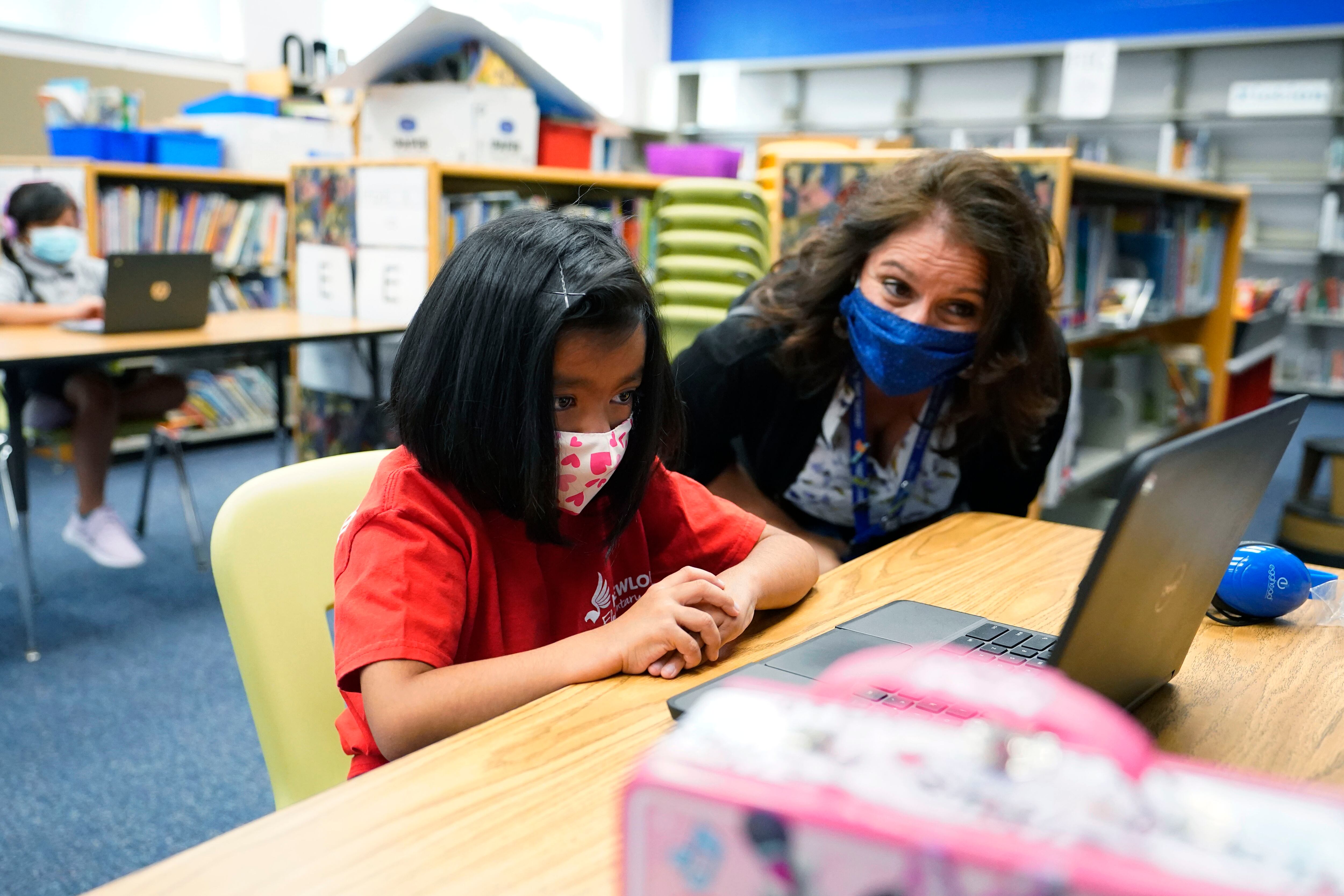For $10 per day, Denver’s after-school program is offering families a solution to one of education’s biggest challenges right now: Who will supervise my child during remote learning?
Denver Public Schools’ Discovery Link program usually runs before- and after-school programs. But since Monday, Discovery Link staff, as well as staff from other community organizations, have been supervising remote learning for up to 15 children per classroom, 60 children per school, at 55 schools across Denver.
And there’s still room. None of the schools are at capacity, said Heather Intres, who directs Denver’s extended learning programs. She estimates there are about 600 spots left out of a total of 2,500. The program is open to Denver students ages 5 to 12, and any family with kids in the district can sign up. Supervision is provided for four hours per day, 8 a.m. to noon.
Children do not have to be enrolled at the same school where the program takes place. In any classroom, there could be 15 kids doing 15 different lessons from 15 different schools, Intres said. While the cost is $10 per day per child for most families, the program is free for families at 11 schools that received grant funding for that purpose, she said.
As COVID-19 cases rose and fell and rose again over the summer, Denver Public Schools decided to start the school year online. Classes will remain virtual until at least Oct. 16. The Discovery Link program will run through at least that date, Intres said.
The low-cost child care option started as a resource for teachers who are also parents. But Intres said the hope was always to open it up to the broader community.
“We are just trying to help kids be successful for virtual learning,” she said. “We know that during the spring, it was really hard for some of our families.”
The program is adhering to strict health protocols that Discovery Link tested during summer camp programming, Intres said. They include requiring all staff and students to wear masks, sit at desks 6 feet apart, and wash their hands frequently.
Other city organizations are also offering supervision for remote learning. Several Denver city agencies banded together to open “learning centers” at four Denver recreation centers starting Wednesday. Each site can serve 20 students ages 6 to 12 from 8 a.m. to 4 p.m.
The learning centers are free — but they’re also already full, said Tracy Breckenridge, communications director for the Denver’s Office of Children’s Affairs.
Denver Public Schools Superintendent Susana Cordova has promised that more free options are on the way. She has repeatedly referenced efforts by the district to set up free learning centers in schools. More details are coming soon, she said Tuesday.





